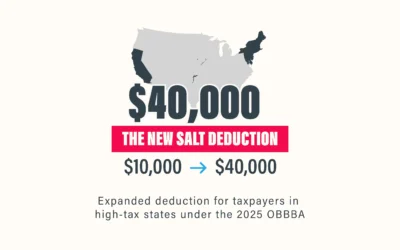Real Estate Investing – How Material Participation Can Reduce Your Taxes
When done right, real estate investing is an extremely popular and proven strategy to accumulate wealth and create stable cash flow. One of the most attractive reasons investors flock to real estate is the amount of available tax opportunities to reduce and defer taxes. While there are many interesting and valuable components, one that comes up frequently with our clients is the concept of material participation.
Why is material participation important?
The IRS tends to look at your income-producing (and loss-producing) activities in two categories: Active or Passive
Without diving down the rabbit hole of tax nuance, the important thing to remember is that Active business activities are grouped together, and Passive business activities are grouped together. If you have income from an Active business activity, and losses from a Passive business activity, they cannot be combined to reduce your overall tax. The Passive activity loss would be limited and rolled forward to future years, which does not help reduce your overall tax today.
The ideal situation is for your business activities to be considered Active, so that losses can offset other sources of income (including W2 earnings) and benefit you now. Since real estate activities tend to generate a tax loss due to depreciation, there is plenty of opportunity to utilize those losses against your other Active income sources.
How do I convert my real estate activities from Passive to Active?
The IRS provides seven tests to determined whether you are “materially participating” in an activity to consider it Active. For real estate investors, the most relevant test is:
You participated in the activity for more than 500 hours
What activities count towards my participation?
Sitting around thinking about real estate unfortunately doesn’t count, otherwise this would be an easy box to check. However, the following activities are listed in Sec. 469(c)(7) of the IRS code and count towards the requirement:
- Real Property Development & Redevelopment
- Construction & Reconstruction
- Acquisition
- Conversion
- Rental Operation
- Management & Leasing
- Brokerage Trade or Business
Assuming you can meet the hourly requirement and are participating in the activities listed above, the best thing you can do for yourself, and your tax advisor is to document everything. Keep good records of your activities during the year, in case the IRS ever challenges you to prove your efforts. Working with your tax advisor to fully take advantage of real estate tax opportunities will increase you chance of accumulating significant wealth.


